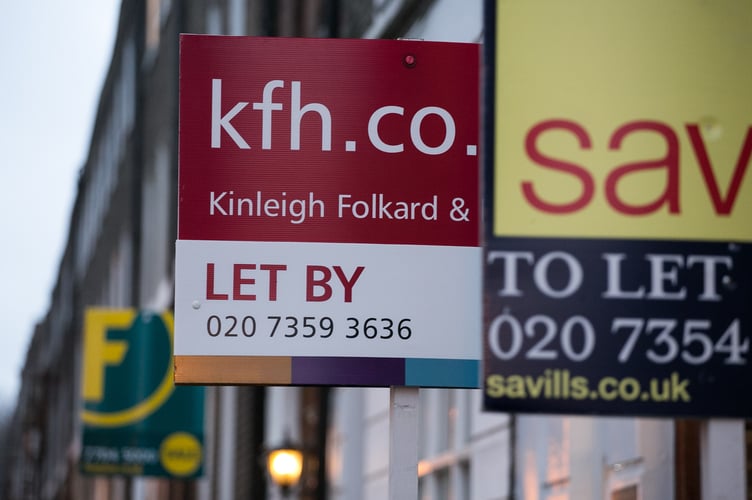Fewer people in Teignbridge lost their homes due to 'no-fault' evictions after refusing to follow a Section 21 order last year, new figures show.
However, across England and Wales, the number of repossessions reached the highest level in six years.
Labour aims to ban Section 21 notices, which allow landlords to evict tenants with two months' notice without a reason, with its Renters’ Rights Bill.
The Bill will take up the baton from the Conservatives' Renters' (Reform) Bill, which had initially included a ban on so-called 'no-fault' evictions before being rescinded.
But the latest figures from the Ministry of Justice show county court bailiffs made 17 repossessions due to a Section 21 notice being issued in Teignbridge in the year to June – though this was down slightly from 18 the year before.
These evictions follow a court repossession order being issued after a tenant has refused to leave the property despite being served a Section 21 notice.
Overall, landlords in the area applied for a further 55 'accelerated possession orders' after Section 21 notices were ignored.
Some 32,789 of these 'no-fault' eviction claims were submitted to courts across the country in 2023-24, the highest figure since 2015-16.
Meanwhile, repossessions jumped nearly 24% last year to 10,802, the highest figure in six years.
The true number of Section 21 notices issued is likely much higher, as these figures only include those in which the tenant has not left the property after two months.
Tom Darling, director of the Renters’ Reform Coalition, said although the Government has pledged to end 'no-fault' evictions, "renters cannot afford to wait much longer".
He added: "We must see legislation brought forward soon to get a grip on the situation and address the renting crisis".
The Local Government Association, which represents councils, said the Section 21 ban "needs to be brought forward as quickly as possible", adding a "genuine cross-departmental approach to tackling this crisis, as part of a long-term government strategy, is key, with councils given the powers and resources needed to address the national shortage of affordable housing".
Labour's election manifesto said a ban on Section 21 evictions would be implemented "immediately", though no official timeframe has been provided.
The Government said it will "take action where the previous Government has failed" and protect renters – including ending 'no-fault' evictions.
Prime Minister Sir Keir Starmer said: "Too many people currently live with the threat of insecurity and injustice, and so we will make sure everyone can grow up in the secure housing they deserve.
"We will introduce tough new protections for renters, end no-fault evictions and raise standards to make sure homes are safe for people to live in."
The Government said it is determined to "level decisively the playing field between landlord and tenant by providing renters with greater security, rights and protections and cracking down on the minority of unscrupulous landlords who exploit, mistreat or discriminate against tenants".
The National Residential Landlords Association said the system which replaces Section 21 "needs to be fair, workable and sustainable for both responsible landlords and renters", warning this means "fixing a broken justice system which too often fails those reliant upon it".




